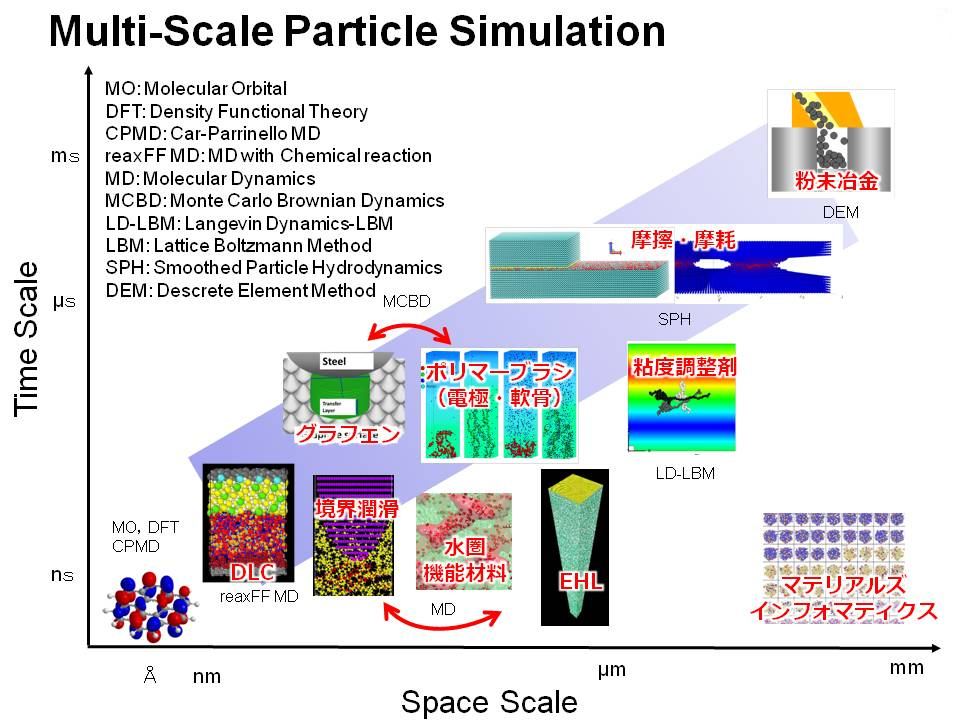Washizu Lab
Prof. Washizu got Ph. D. from University of Tokyo in Physical Chemistry (Molecular Simulation of Polymer Solution). His main research field is dynamics of molecules on surfaces, especially in Tribology, which is science and technology of friction, wear, lubrication. Based on his 14 years carrier in automotive laboratory, work in MEXT next generation supercomputer project, Element strategy project, NEDO wind turbine project, he is a specialist in super computing and collaboration research with industries. He is also Research Center Professor at the Elements Strategy Initiative for Catalysts and Batteries (ESICB), Kyoto University.
Research Field
Our lab provides simulation studies for material sciences, which is useful for industrial applications. Our viewpoint of the studies is physical chemistry of molecular ensembles in interfaces. Properties of materials are governed by the bulk and the surface properties. The properties of the materials are strongly affected by the molecular properties of interface, which is described as “God made the bulk; surfaces were invented by the devil” by Wolfgang Pauli. In other words, we are able to design innovative properties of materials controlling by the interfaces. For example, our bodies are made of ionic polymers (polyelecrolytes solution) and transformation of materials and energy in high quality as the living systems are realized by controlling long-range Coulomb interactions between molecules in solution. For industrial purpose, the characteristics of the interfaces are important in lubrication or in electrodes in batteries.
In materials simulation, there are two level of simulation, quantum level and the level of atom ensemble. The latter is named molecular simulation in a narrow sense, and we are involved in the latter ones. Although the molecular simulations seems rather easy than quantum simulations because they say they solve Classical Newtonian equation of motions, molecular simulations are based on complex statistical mechanical basis and have connection with fluid dynamics, and development of simulation methods are not finished yet. The development of new simulation method such as multiscale, mutli-physics scheme in electron, atom and fluid level is also our object of researches.

Please find detailed information such as biography, research field, research topics, publication and other works including social activities, please visit the Researcher database in our university and the Web site of our laboratory.





